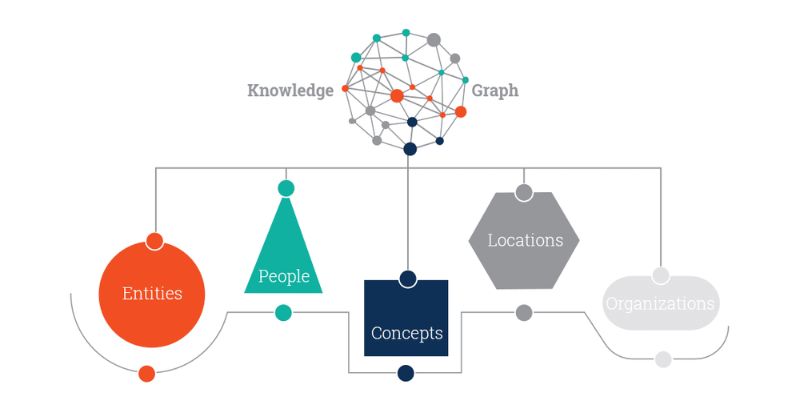Semantic Search: What is it and How Does it Affect SEO?

There is more to digital marketing than simply inserting the right keywords on the right pages. It is vital to understand the function of those marketing tools and the best ways to use them in an age where practically everyone uses the same marketing strategy. It is for this reason that new ideas in digital marketing are leaning toward semantic search.
What Is Semantic Search?

Semantic search, also known as semantic SEO, is a method that search engines use to comprehend language, specifically, language that is as similar to human speech as possible. Search intent, context, and the connections between words are used in this process. When searching for relevant results, this typically offers contextual results rather than using non-contextual keywords.
Therefore, if you type “where are most leopards found?”, you will probably find a relevant response. However, if you type “how many leopards exist and where are they mostly found?” , the results from the semantic search will be tailored to the context of leopards, numbers, and location.
How Semantic Search Affects SEO

The strategy for content marketing should be more than just keywords because Google keeps changing its algorithm. Google Hummingbird is the most significant change, and it focuses more on a more human approach to search queries. This is further buttressed by semantic search. Here are some ways by which semantic search affects SEO.
1. Makes search easier and more intuitive
A lot of changes to the web are going on underground. With all these alterations, web users have become used to intuitive, fast experiences that give them the desired result. Earlier, web users had to search for different variations of what they wanted if the initial search result did not match their expectations.
Similarly, there was a need for SEO professionals to determine the exact phrases the web user might use before presenting content with those phrases. This way, there was a disconnect between the search results and the initial search intent of the web user.
This process was changed by semantic search by focusing more on the intent of the web user and less on the specific phrasing or words. To present these types of results, SEO professionals also have to change their strategies.
2. Better content
Improving the search experience of the web user is the goal of every algorithm. Search results with Hummingbird came up to be the most relevant based on the user’s untyped intent. The queries people now search are similar to how they talk. Through Google’s use of artificial intelligence (AI), searches on various websites are based on this new syntax.
Now more than ever, the quality of the content delivered by semantic search has to be high as there is less emphasis on specific formal phrase structure and keywords. Keyword stuffing, awkward keyword phrases, or oddly placed keywords in a website’s content will no longer appease web users or Google.
To produce the high-quality content that is now expected, content writers must carry out thorough research. Also, they must be able to write in a way that is attention-grabbing, easily readable, and offers value.
3. Quality results
With semantic SEO, the search engine results pages ought to at the very least be stuffed with informative content that completely responds to the user’s query. The use of “rich answers” is a key component in making this happen.
These search query responses are compiled by Google and presented on search results pages (SERPs) so that the user is not required to click on a website URL to view the content. Short excerpts of a website’s relevant content are shown to the user.
Although snippets are the most commonly seen examples of “rich answers”, SERPs may also include tables, charts, maps, and forms that show relevant information. Search engine users will have a better experience when they quickly find the answers they want.
4. Better user value optimization
The goal of semantic SEO is to address the real concerns of web users and to create the most value for them. SEO professionals now need to invest more time in ensuring that their website content is valuable to users.
Of course, this is a topic that has been discussed for years, but now you need to consider more than just the keywords those users may use when asking their questions. Since keywords are not stressed too much, it is more challenging for SEO to determine the purpose behind a user’s search.
However, since this is a fairly unpredictable factor, SEO professionals would be safer and better off creating excellent content that benefits a broader, larger audience.
5. Less emphasis on keywords
As you now understand, semantic SEO does not place too much importance on keywords. To determine the popularity of particular keywords, keyword research is still crucial. The keywords you decide to concentrate on, however, are no longer the utmost important thing of your SEO plan.
The days of websites requiring a specific keyword density or exact-match keywords for each page of the website are no more. Now, those keywords help to direct our attention to specific discussions and topics, but the actual user’s needs must be the primary focus of our content.
6. More flexibility
The shift away from exact-match keyword phrases gives SEO professionals much more content flexibility. Website content can be more inventive, distinctive, genuine, and ultimately helpful when word synonyms and alternative wordings appear in search results. Writers of content are no longer required to create content merely to promote particular keywords.
For this reason, web users gain from the new semantic SEO strategy, as do SEO professionals who write and optimize website content. The two are given a better understanding of one another, which has improved the experience of browsing the internet in general.
Conclusion
The concept of semantic search is quickly becoming a reality, which is why any good SEO company must ensure that the content they produce is capable of processing semantic search. As part of your semantic SEO strategy, you can make a variety of easy-to-implement actions and structural changes to keep your website relevant.







No comments, be the first one to comment !